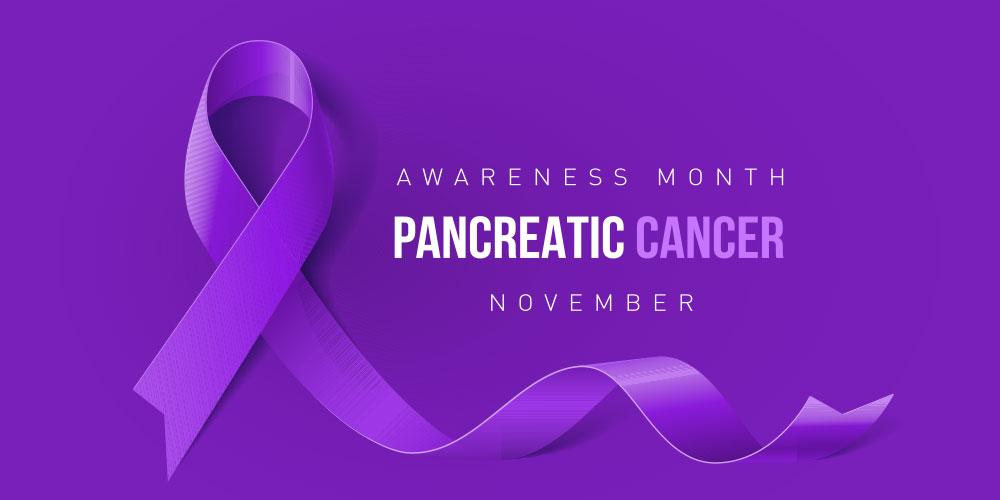Pancreatic cancer often isn’t caught until it’s advanced – but there are ways to minimize risk and catch it early.
During Pancreatic Cancer Awareness Month, Dr. Evan Glazer, Regional One Health surgical oncologist and national expert in treating pancreatic cancer, is helping patients be proactive.
“We don’t have general screening for pancreatic cancer like breast or colon cancer. Many patients present with later-stage disease or disease that already spread when they first learn they have pancreatic cancer,” he said. “But there are ways to minimize risk and symptoms you should discuss with your provider.”
He explained, “Our understanding is pancreatic cancer forms when inflammation is so severe it eventually causes cellular changes.”
Chronic pancreatitis, new-onset diabetes, smoking, and excessive weight gain can increase risk, so he encourages quitting smoking, maintaining a healthy weight, and seeking treatment and monitoring for conditions like pancreatitis and diabetes.
“See a primary care provider regularly and look for changes that don’t seem right. It’s probably not pancreatic cancer, but paying attention to your body is important.”
Common symptoms include jaundice (skin and eyes turning yellow), a dull ache in the stomach, poor appetite, weight loss, itchy skin, or changes to bowel movements or urine. See your provider about any of these symptoms right away.
For high-risk patients, genetic screening may be an option.
“For patients with a family history of pancreatic cancer or other cancers, like breast, ovarian, even prostate cancer, we can provide genetic testing and screening because of their higher risk,” Dr. Glazer said. “We learn more about the genetics of cancer every day.”
Screening for high-risk people involves a series of MRIs and endoscopic procedures. If anything concerning shows up, the patient will have a biopsy; otherwise, they’ll continue with monitoring.
Treatment is improving all the time.
“Treatment can be a combination of chemotherapy, surgery, radiation, and other options,” Dr. Glazer said. “The selection is based on characteristics of the tumor and the patient. Our goal is to care for the right patient at the right time with the right treatment.”
If pancreatic cancer has spread, it can be managed with chemotherapy. If it is confined to the pancreas, a patient may have chemotherapy followed by surgery and possibly radiation to try to cure the disease.
“We use a multidisciplinary approach and provide optimal, personalized care,” Dr. Glazer said.
“In the last 15 years, we’ve almost tripled survival rates with better techniques in surgery, a better understanding of tumor biology, and better chemotherapies. It’s exciting to be involved in research and clinical trials as we work to better deliver care.”
Dieticians, physical therapists, and others help provide comprehensive, personalized, and holistic evidence-based care. Dr. Glazer expects care to continue improving. “Pancreatic cancer can take many years to form.
During that time, the cancer cell develops signals that tell the cancer to grow,” he said. “If we can block those, we may be able to use other therapies to attack cancer cells.
The future of the research is a multi-prong approach where we attack cancer from different angles, including using the patient’s own immune system.” Dr. Glazer performs research at the University of Tennessee Health Science Center to develop novel therapies to treat pancreatic, liver, and other cancers.
Learn more: regionalonehealth.org/cancer-care/
By Kelly Josephsen







